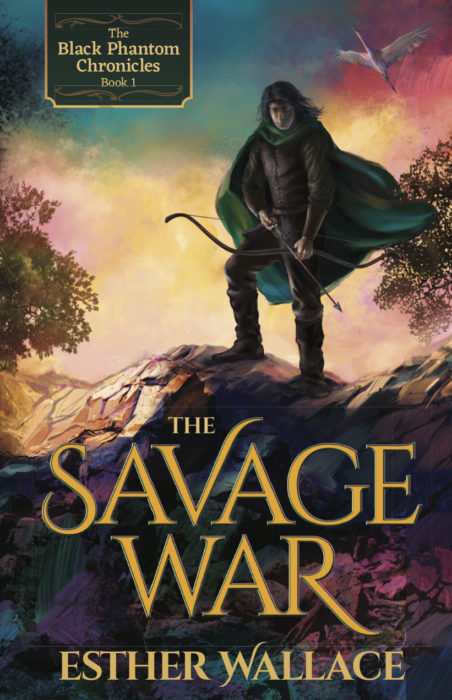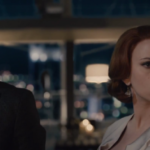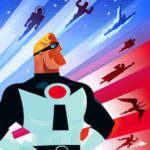The Price and Power of Individual Choices
Some readers have asked me why The Savage War doesn’t have much to do with magic.
My first serious answer is that High Fantasy was not the story I was given to write.
My second is that it is very important to me that people realize their worth.
I’ve spoken to several people who sigh and tell me they wish they were superheroes or wizards going to Hogwarts. I ask them what’s wrong with being human. Their response is that humans are nothing. This is an idea that has been pushed by pop culture.
In Harry Potter, the non-magical population, muggles, not only are forbidden from Hogwarts, but the wizards think it is fine to confuse them, wipe their memory, etc. etc. etc. Wizards have no more respect for humans’ inalienable right to choose right and wrong for themselves then if ‘muggles’ were animals and not humans at all.
On the flip side of that message, there’s a subtle story of what that attitude creates in Petunia. Because she was rejected, told she was nothing by Snape in particular, she threw a wall between her and that world of wizards, refusing to acknowledge its existence. When forced to do otherwise, she acted with bitterness and hate. Not that I like Petunia’s character, but I understand what caused some of her choices.
Very few notice that story however. It was inserted by accident as a reason to create a horrible living circumstance for the main character, a reason for him to dream of escape and for people to sympathize with him.
Superhero stories, of course, abound with people being physically changed forever before they go out and ‘rescue the world’. I always wanted Captain America to stay the sick kid and find some way to make a huge difference in the world, earning the title Captain America for great deeds that no one thought him capable of doing. Instead, they make him a ‘giant’ first.
I do appreciate the MCU (Marvel Cinematic Universe) more than DC however, for the existence of Hawkeye and Black Widow. They didn’t heavily alter themselves to go save the world. They just go out anyway with all the natural talents and some gismos given to them. Once again, they aren’t the big poster Avengers as they’re shunted aside for those with super powers.
When books are changed into film adaption, the message of human worthlessness is typically added. The producers made a point to have Elrond spurn the worth of humans in the film adaptation of the Lord of the Rings. Some have argued that Aragorn proves him wrong, but I have heard others say he has Elven blood in him, so he’s still not fully human.
There are films and books that fight this idea, but I have heard about enough people struggling with their worth to know a story about our responsibility as humans, without going too far the other way, is something priceless.
Therefore, a side theme in The Savage War is how all our choices can sink or raise a kingdom. A tiny action ripples outward until it fills an entire ocean, and we don’t need to turn to science or other powers to make a difference. God placed humans on the Earth to tend it (Genesis 1:28-30) and Jesus said with the faith of a mustard seed, we can move a mountain (Matthew 17:20). Our power is released through both our love and our faults. Who will we touch or harm by love or anger next and where will that go? Only God knows the answer, but we can at least remember the extent of our power and worth, our responsibility given by our Creator.











































Very good article. Besides fantasy, I’ve noticed that in science fiction the aliens are always smarter, more moral, more thoughtful and beautiful, stronger, and better than humans (e.g., Vulcans on Star Trek). Human beings always take a beating in fantasy and science fiction, and we, as writers, need to work to change this.
I’ve only watched the older Star Treks, but even there, you’re right. Vulcans of course had it right.(lol)
Hm…that’s kind of interesting. I think there’s a lot of stories that do sneer at humans (especially ones where environmentalism is a heavy theme) but a lot of times I kind of interpreted fantasy and such to be supportive of humans. Like, in spite of getting looked down on by other races, seeming less powerful, etc there is often still a lot of focus on humans. Many times there seems to be the undertone of proving that humans can still be effective or be worth fighting for in spite of the criticism they receive.
Honestly, even if there are plenty of stories that overplay the importance of superpowers/magic, many do not. And it isn’t the presence of powers that automatically negates the power of regular humans or choices. If someone has powers, their choices still matter a lot, otherwise they’ll wreck everything or become a threat everyone wants to destroy.
Have you read Wings of Fire Legends: Darkstalker by Tui T Sutherland? It’s really good. The three main chars have powers, but in a lot of ways the story puts more emphasis on the psychological aspect of choices and how those powers are used. And in the Wings of Fire series itself, there are lots of main chars and heroes without powers at all.
Thanks for your input! I agree, human choices are very important, magic or non. I just find that people miss that truth, focusing on the magic or superpower instead.
I haven’t read Wings of Fire Legends, although I’ve seen them frequently. Thanks for the suggestion.
You make very good points, Esther. I’ve never thought much about the treatment of humans in fantasy/fiction, but you are right.
I’ve placed your book on my TBR list; I can’t wait to read it.
Thank you!
Thought-provoking. And agreed. The “world” needs to see “normal people” doing extraordinary things. In Christian fiction, they need to see them doing it within the will of the Lord, and through His strength. I always go back to the little Dutch clockmaker and her sister, who rescued countless Jews, suffered terribly but did it all for the glory of the Lord. Regular people doing amazing things through God.
I love that book about the clock maker too! It’s one of my favorites!
Corrie Tenboom?
Yes, Corie TenBoom along with her father and sister Betsy and a ew other family members in the Resistence too.
I’d like to point out that in worlds full of Elves, Superheroes, and magic, normal humans usually always tend to be the most numerous and prosperous instead of being on the constant verge of extinction.